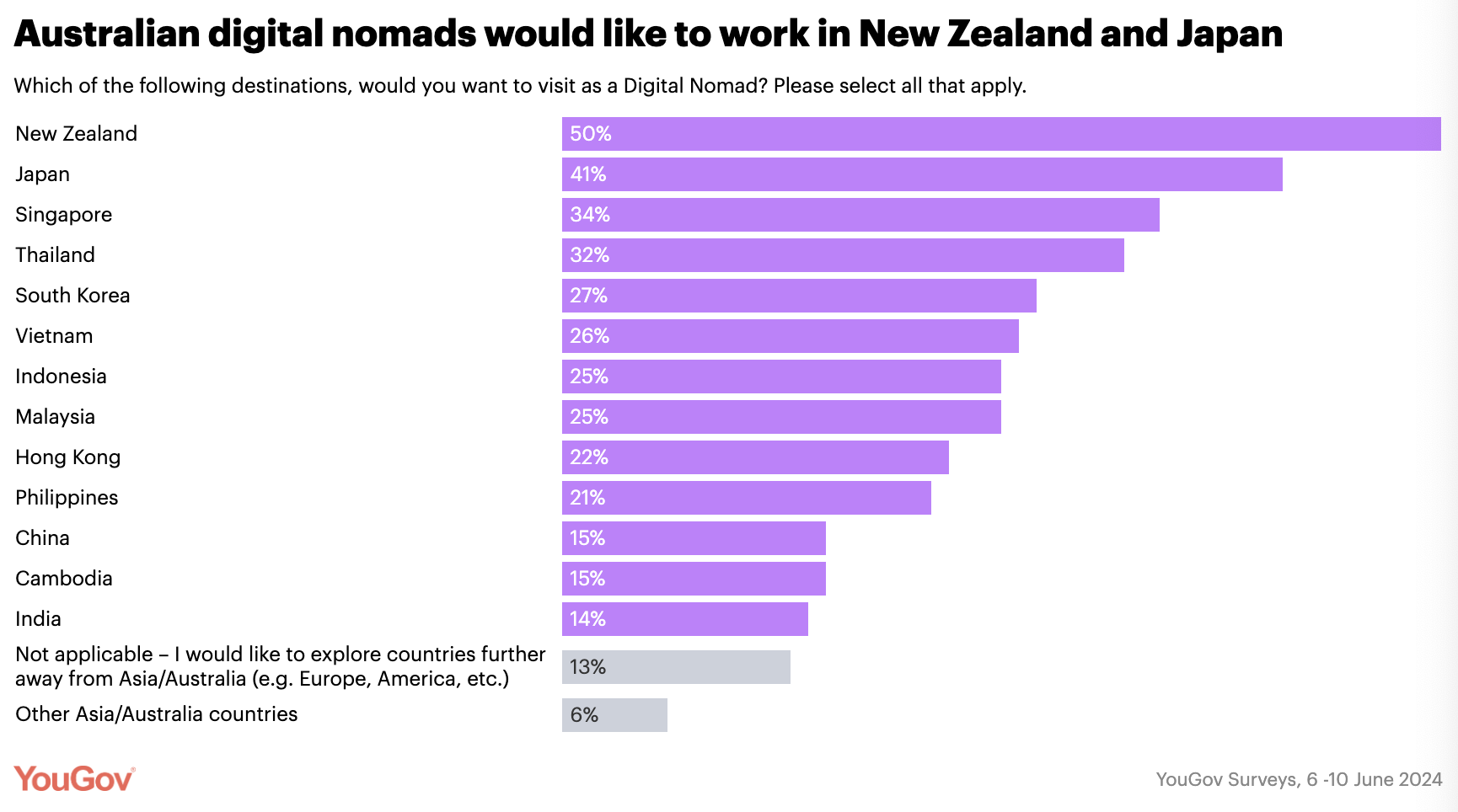
Accommodating digital nomads at work — how hard can it be?

New Zealand has emerged as a top destination for digital nomads in Australia, according to a new survey by YouGov.
The survey, which polled 830 Australians, found that 50% of digital nomads would like to work in New Zealand. Their other top destinations include Japan (41%) and Singapore (34%).

Shannon Karaka, Deel's ANZ country manager, attributed the respondents' top choice to New Zealand's "quite lenient" immigration policy for Australians.
"If you're an Australian citizen or permanent resident, you do not require a visa to move to New Zealand. So, I think that's a key consideration," Karaka told HRD.
The Deel NZ country manager also attributed it to New Zealand's beautiful and picturesque landscape, as well as its economy.
"What is also interesting and somewhat unique about New Zealand is that it's multiculturally diverse," he added. "I'm Māori. I am originally from New Zealand myself, and my family are indigenous to New Zealand. So, if you've been there, New Zealand is quite rich and multiculturally diverse."
Karaka defined a digital nomad as a global remote worker or a global worker who has the ability to work from anywhere.
Organisations implementing remote work or work-from-anywhere policies can tap this global talent pool or allow their employees to be a part of this talent pool.
But implementing one isn't easy, said Karaka citing legal, payroll, HR, and cultural nuances to work-from-anywhere policies.
"Hiring around the world and hiring in different countries is fraught with risk from a compliance and payroll perspective," he noted. "But also commercially, investing in maybe an entity to set up or establishing a business overseas, without pressure testing whether the market is the right fit, can end result in a negative commercial outcome."
There are also major concerns for productivity, which is already an issue for employers implementing remote work alone.
Karaka noted that there are various tools that could help in measuring productivity for digital nomads, but ultimately, garnering a "digital nomad" role is still a privilege.
"Being a digital nomad, I'd say it's a privilege," he said. "I think if you are a digital nomad, the onus is on you to demonstrate that you are capable of being productive even though you're working overseas or in another country."
Overall, implementing a work-from-anywhere policy will grant employers access to a wider pool of talent, including digital nomads, amid talent shortage and retention challenges in workplaces.
"Organisations need to think about it because there is a rising demand of workers who want to work digitally around the globe and if they want to win the talent war, they need to be thinking about these types of things to attract and retain key talent," Karaka said.
To get themselves started on their work-from-anywhere benefits, the Deel ANZ country manager suggested establishing a framework for global mobility policy.
"They need to establish a framework around why they are going to create a work-from-anywhere policy and what is the outcome that they're looking to deliver on. Once they've established that objective, create a policy that aligns with delivering that," he said.
Employers that push through with a work-from-anywhere policy would also face the challenges of collaboration, company culture, and wellbeing of their digital nomads.
Providing these employees with the technology that they need to be successful in their roles will be critical to their success, according to Karaka.
"What we do here at Deel is we provide employees our teams around the globe the ability to access co-working solutions so that they can connect and collaborate with their broader team on demand if and when they would like to catch up in person," he said.
Ensuring digital nomads are also legally compliant is another way to support them.
"Creating peace of mind is extremely important and here at Deel… we take all of the heavy lifting away from customers and from their workers so that they don't have to worry about labour law compliance, payroll compliance, or whatever the HR cultural nuances are country to country."